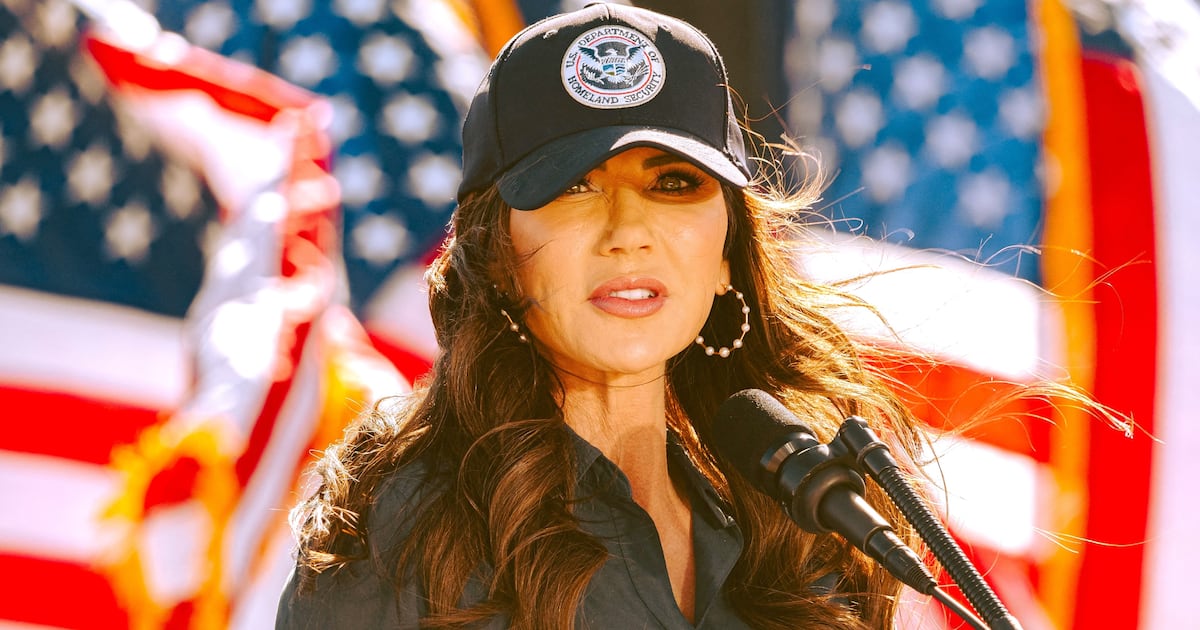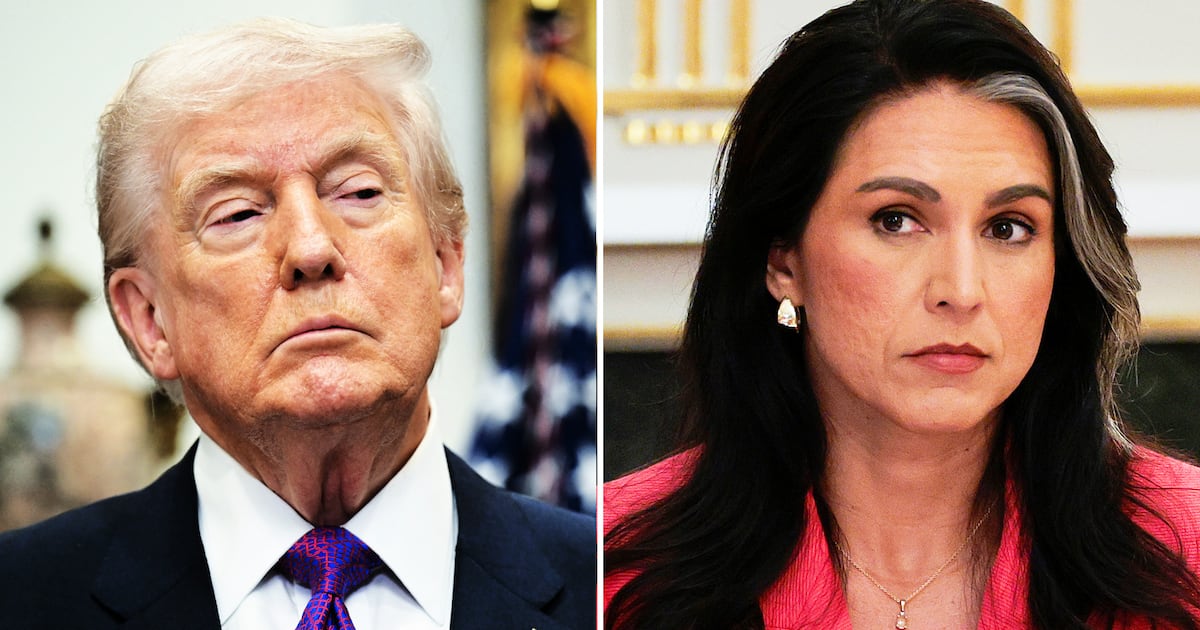Fifty miles from the border with Syria, 16-year-old Muzoon Almellehan treads the dusty paths to her school, a sprawl of mural-covered buildings surrounded by chain link fence in the desert expanse of Jordan’s Azraq refugee camp.
The 11th-grader is currently furious because two young classmates in her science program have dropped out to get married. Now only five girls are left. “I try to tell them, but they didn’t listen,” she says. “They don’t see the negative effects, but there is no reason for early marriage here.”
In her community of war survivors, Muzoon has been dubbed the Malala of Syria. For two years she’s tirelessly pursued a campaign to halt what she sees as an epidemic of child marriage threatening her generation. At the same time, the number of young brides is skyrocketing as the conflict enters its fifth year and parents in Syria and refugee populations become desperate to protect their daughters from militant groups like ISIS, and dangers in the camps.
Muzoon arrived to Jordan among a huge influx of fleeing Syrians in 2013, not long after fighting in their hometown of Daraa shut down the schools. Her parents and three siblings settled in Za’atari refugee camp and enrolled their children in school. As Muzoon struggled to adjust to the curriculum and understand her teachers’ accents, she noticed girls her age were disappearing from class. Halfway through the year, the 40 girls in her program had dwindled to 20.
“A lot of them thought education for a girl was unimportant,” Muzoon says. “They were [using] all different reasons, but not one single reason was good enough to drop them out of school.”
Child marriage wasn’t something she saw commonly at home in Syria, but in the camps it seemed rampant. “The trend spread as an infection between people,” she says. “Maybe [parents] thought it was to protect the girl and secure her future—they imagine this is a solution to all their problems.”
Four years of war and displacement has led to a huge spike in early marriage among Syrian girls, both inside and outside of Syria. Families bombarded by bombs and roving rebel groups believe that marrying their daughters will offer a level of protection (PDF), both economic and physical, that they cannot.
In 2011, at the outbreak of civil war, around 12 percent of underage girls were married both inside Syria and within Jordan’s Syrian refugee community. In 2013, a quarter of these girls in Jordan were married. By the first part of 2014, that figure had spiked to one-third, due to both the increasing practice and rising number of refugees, according to UNICEF.
“Living as a refugee in Jordan is a very stressful and difficult situation in any case,” says Maaike van Adrichem, a gender-based violence specialist with UNICEF in Jordan. There’s “a really strong pressure on families” to keep their children safe in an unfamiliar environment, she says. “In a sense it might be a relief for them to have found a solution for their daughters.”
In Jordan, the legal age for marriage is 18, but this can be petitioned for younger girls. “Unfortunately these special conditions can be granted quite easily,” says van Adrichem.
In Za’atari refugee camp, international organizations like UNICEF and Save the Children had taken note of the rising numbers. They enlisted young activists to pound the refugee camp’s streets, talking with parents about the importance of girls’ education. Muzoon joined up and found herself a master campaigner. It’s clear why: She’s shy on a first impression, but when she speaks it’s powerful, poetic and rapid-fire. She soon earned a nickname that stuck: the Malala of Za’atari.
“Lots people were listening [to me], even fathers,” she recalls. “Because I wouldn’t tell them in a forceful way, or say, ‘You have to send her to school.’ I’d initiate the debate and say girls’ education helps them the most.” Ingrained beliefs were hard to crack, and parents would often look at her and ask her how she expected a small girl could sway her elders. But she knew her facts were effective. “Sometimes people would do wrong thing and not know they were doing the wrong thing,” Muzoon says.
But the girls were more malleable. “Imagine how life would be with your own house and children,” she’d warn peers in her camp neighborhood. “You will not be able to deal with it.” When a 17-year-old girl was engaged to marry a man as old as her father, Muzoon petitioned against it. In the end, the girl decided not to get married, and Muzoon was thrilled with her first success. “I was not happy for me,” she says. “At the end of the day, it’s not me who’s going to suffer, it was that girl.”
In February 2014, Pakistani education activist Malala Yousafzai visited Za’atari and the two girls were introduced. They ended up spending the day together, visiting with their fathers and touring the camp’s schools.
The family has since moved to Azraq camp, but Muzoon has continued her activism. Like Malala’s famously supportive father, Muzoon’s dad is a sidekick for his hardheaded daughter.
Rakan, is a quiet, serious man. With blue jeans and black boots, a groomed black moustache and leathery skin, he resembles a cowboy. Back in Syria, Rakan was an elementary-school teacher, but he shrugs off any credit for his daughter’s education crusade. “I didn’t really do much except encouraging her and her siblings to study,” he says. “Most of it came from Muzoon herself, she’s always been a special girl.”
He praises her accomplishments and goals—she plans get a Ph.D. and become a professor of journalism—despite the circumstances. “Sometimes you have a dream to pursue, but life can change and not turn out as you want—it’s something you cannot foresee,” he says. Then he adds, making Muzoon blush: “It made me see how far she can go with this should she get the right support.”
The comparison to the Nobel winner is a little much for her, though. “I don’t think I’m anywhere close,” she says. “Malala was a girl who saw death with her own eyes.” That fall, Muzoon got an invitation in the mail. Malala had become the youngest winner of the Nobel Peace Prize and wanted her and four other young female activists to accompany her to pick it up in Norway. It was Muzoon’s first time out of the country, and she calls it “a changing moment in my life.”

Programs for vulnerable girls are under threat in Jordan, where funding to address the refugee crisis has plummeted dramatically. Syrians living in urban communities rather than camps—which comprises a majority of refugees—have seen their food assistance and health coverage dramatically reduced in the past year. Now, costly new registration requirements have sent refugees either back to the camps or into hiding.
According to UNICEF’s van Adrichem, organizations are working double time to ensure that child brides are not left out as services decrease. Their needs are myriad: Along with immediate health and safety, refugees may not properly register weddings and childbirth in Jordan, meaning the girl could lose legal rights to file for divorce or take custody of her children. Van Adrichem says that it’s increasingly “not considered appropriate or safe for girls and women to leave the house,” making them difficult to reach.
This puts the burden on young local activists like Muzoon, who can pick up snippets of plans in the classroom and on the streets and deploy this knowledge to combat the market of young brides.
“They’re still too young to be burdened with responsibilities that are bigger than their age,” she says.
In one of the housing blocks just down the road from the school, three generations of women perfectly epitomize the fight Muzoon, Malala, and other activists for girls’ education are waging.
Refugees arriving to Azraq are given a square container house from UNHCR, which they line with flat mattresses and whatever belongings they’ve managed to carry out of Syria. In one of these makeshift homes, 17-year-old Amena holds her 1½-year-old daughter and takes a seat on the floor next to her mother, Nour (not their real names).
Amena is soft-spoken, clad in a pink dress with a pink headscarf wrapped around her youthful face.
Before they left Syria and began the year-long voyage to Jordan, Amena’s family decided there was no choice but to marry her off. She was 14 and had just finished seventh grade when the war shut down the school system. With no opportunity for further education, and the rise of unpredictable fighting—with threats from ISIS, rebel militias and regime soldiers—her existence without a husband was perilous, her family decided. They feared she would be kidnapped.
“I thought this would help my daughter and protect her,” Nour says. “I felt there were no other options but marriage. That was common [then].”
“None of us wanted it: I didn’t want it, my family didn’t want it, but there was nothing else we could do,” Amena says. “Anyone could easily take the girl they want, abduct her, and force her to go with them.”
Her father found an eligible a 29-year-old suitor, but things soon turned sour. He became violently abusive, even once throwing boiling water at her.
Her mom now feels they underestimated the situation and that the marriage was pointless. “The actual reality is, if she’s single, they’d take her, if she’s married they’d kill the husband and take her,” she says.
In their neighborhood, another father tried to stop his daughter’s abduction by an armed group one night. “You cannot take her even if you burn me,” Nour remembers he said. They killed him and hung his corpse in front of the family’s house. “I don’t even think these are human beings, these are monsters,” she says. “My mind cannot accept these are humans like us.”
When Amena’s daughter was just a newborn, her husband was detained and the family made a run for it. It took the group of eight nearly a year to find their way from Homs to the border. They arrived in Azraq eight months ago, missing one member: Amena’s father was detained en route and is now in Algeria.
Angry that Amena had escaped with his baby daughter, her husband began to send threatening messages. He pledged to marry again, he swore to kill her and her siblings, he said he’d report them to the regime. It became apparent that he was having the family watched even from hundreds of miles away.
One day, Amena was on the phone with her sister in a shaded area next to her home in the refugee camp when two men came up behind her. One grabbed the phone and the other wrapped a wire cord around her neck. She lost consciousness. Luckily, a neighbor passed by and the men fled.
Since then, Amena has tried to commit suicide multiple times. “Yes,” she says. “I wish to die. Death would be better than this life I’m living.” She’s currently taking antidepressants, but is racked by fear. In a mental evaluation that she shares, a psychiatrist with the International Medical Corps has written that “improvement of her case is very slow.”
Amena hopes other families in her situation won’t make the same mistake. “The only thing [a girl] should do is pursue an education, that’s all she should focus on,” she says. With hopes of studying English literature, Amena will take a placement test to determine her grade level for the next semester.
She’s scared, but determined. So much so that Amena wanted her real name to be used in this article (The Daily Beast decided it was not worth putting her in further danger).
“Life is camouflage,” she says. “Nothing in our lives is real now.”
This reporting was supported by the Bill & Melinda Gates Foundation and made possible by CARE.






